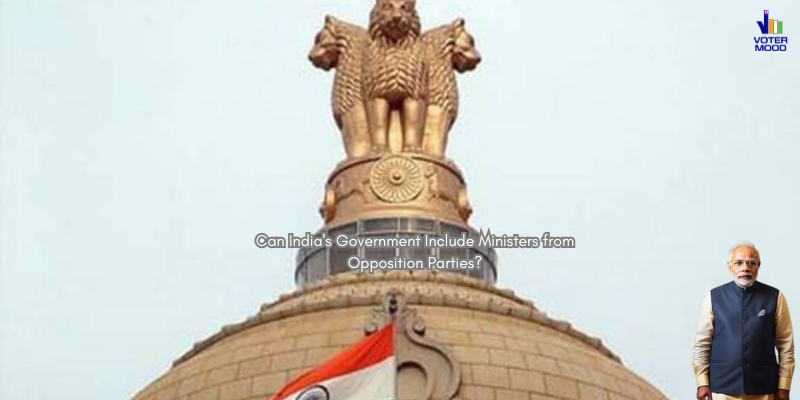
The Indian democracy is often characterized by intense competition and ideological differences. One of the main questions is whether the government can or should include the ministers from the opposition parties as an intriguing one brings a fourth of the potential for a more collaborative and inclusive approach to governance.
In this write-up, we will discuss the possibility, particularly focusing on the political dynamics in Punjab under the Aam Aadmi Party (AAP).
Can India’s Government Include Ministers from Opposition Parties?
The Concept of Inclusive Governance
Inclusive governance refers to a political system where the government comprises members from multiple political parties, including those in opposition. This idea is rooted in the belief that a government representing a wider spectrum of political views can make more balanced and representative decisions. It fosters collaboration and reduces the often-adversarial nature of politics.
Constitutional and Legal Framework
India’s Constitution does not explicitly prohibit the inclusion of opposition party members in the government. The Prime Minister, as the head of the government, has the prerogative to appoint ministers from any party, provided they are members of Parliament.
However, this practice is not common in India’s political tradition, where the ruling party or coalition typically dominates the government.
Historical Precedents
There have been instances in Indian history where opposition members were included in the government. During the early years of India’s independence, Prime Minister Jawaharlal Nehru invited Dr. B.R. Ambedkar, a prominent leader of the opposition and the architect of the Indian Constitution, to join his cabinet.
Similarly, in more recent times, the National Democratic Alliance (NDA) under Prime Minister Atal Bihari Vajpayee included leaders from different parties within its coalition.
The Punjab Scenario
AAP’s Approach Punjab presents a unique case study in this context. The Aam Aadmi Party (AAP), known for its alternative approach to politics, secured a significant mandate in the 2022 state elections. Under the leadership of Bhagwant Mann, AAP aimed to bring a fresh perspective to governance, often contrasting with traditional political practices.
While AAP has not included opposition members in its cabinet, the party has emphasized transparent and accountable governance. This focus on good governance can be seen as an indirect form of inclusive governance, where the interests of all citizens, irrespective of political affiliation, are considered.
The AAP’s approach in Punjab highlights the potential for a political culture that values constructive opposition and collaborative problem solving.
Benefits of Including Opposition Members
Including opposition members in the government can have several benefits:
Enhanced Representation: It ensures that diverse political views are represented in the decision-making process, leading to more balanced policies.
Reduced Polarization: Collaborative governance can reduce political polarization and foster a more cooperative political environment. Increased Accountability: With opposition members in the government, there is a higher level of scrutiny and accountability, potentially leading to more transparent governance.
Broader Support for Policies: Policies formulated with input from various political perspectives are more likely to gain broader acceptance and support from the public.
Challenges and Criticisms of Including Opposition Members
Despite the potential benefits, there are also significant challenges and criticisms associated with including opposition members in the government
Political Stability: The inclusion of opposition members could lead to political instability, especially if there are fundamental ideological differences.
Operational Efficiency: Decision-making could become slower and more cumbersome with divergent views and interests.
Public Perception: The public might perceive such inclusivity as a compromise or dilution of the ruling party’s mandate, potentially leading to dissatisfaction among its core supporters.
International Perspectives
Looking at other democracies, countries like Germany and Switzerland have successfully implemented inclusive governance models. In Germany, the concept of a “Grand Coalition” has been used, where major political parties, including those in opposition, come together to form the government.
This model has been effective in providing stable governance and representing a broad spectrum of political views.
The Way Forward
For India, moving towards a more inclusive governance model would require a shift in political culture and mindset. It would necessitate viewing opposition parties not as adversaries, but as collaborators in the nation-building process. Political leaders would need to prioritize the collective good over party interests, fostering a spirit of cooperation and mutual respect.
The Final Words
While the current political landscape in India does not frequently witness the inclusion of opposition members in the government, the concept remains a compelling possibility for enhancing democratic governance.
The example of AAP in Punjab, with its emphasis on transparency and accountability, illustrates that there are alternative ways to achieve inclusive governance without necessarily including opposition members in the cabinet.
As India continues to evolve as a democracy, the potential for more collaborative and inclusive governance remains an important consideration for future political developments.